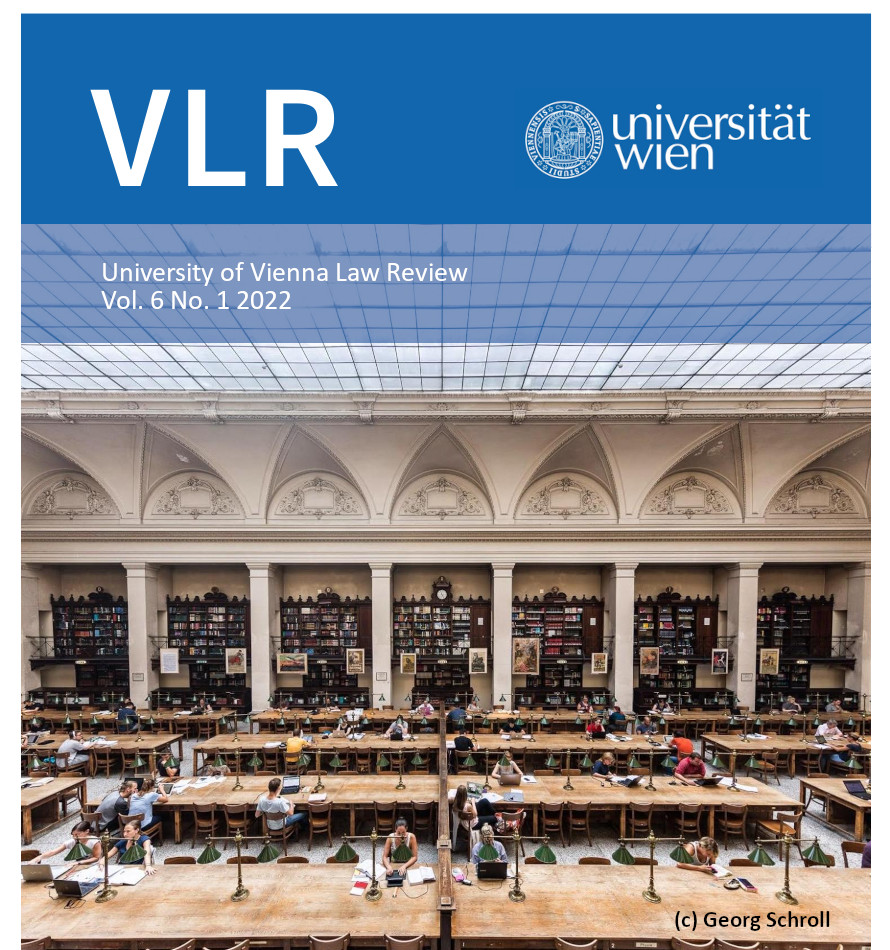Excessive Data Collection as Abuse of Dominance under Art 102 TFEU
DOI:
https://doi.org/10.25365/vlr-2022-6-1-141Keywords:
Art 102 TFEU, unfair trading conditions, digital economy, big data, Digital Markets Act, GDPRAbstract
In the digital economy, data (as opposed to monetary prices) often serve as a kind of non-monetary consideration provided by the user. Against this background, data policies of dominant undertakings may, under certain circumstances, violate the prohibition of imposing unfair trading conditions as laid out in Art 102 lit a TFEU (Section 5 para 1 nr 1 Austrian Cartel Act).
The economic peculiarities of the digital economy as well as the functioning of multi-sided online platforms require a differentiated analytical framework under competition law. In accordance with the constituting elements of Art 102 TFEU (Section 5 Austrian Cartel Act), this framework should not only apply to the definition of the relevant market and the determination of market power, but also to the assessment of the incriminated conduct’s fairness. Reliable results warrant economic concepts that adequately consider the multi-sidedness of platform markets, the interconnectedness of different customer groups, the platform operators’ pricing logic as well as the competition in innovation prevailing in the digital economy.
The fairness of the business terms in question always needs to be assessed against competition law standards, which may also include non-competition concerns (such as data protection interests). However, violations of norms outside the remit of competition law (such as data protection law) are neither necessary nor sufficient for an abuse of a dominant position in the meaning of Art 102 TFEU (Section 5 Austrian Cartel Act).
Downloads
Published
Issue
Section
License
Copyright (c) 2023 Dr. Arno Scharf

This work is licensed under a Creative Commons Attribution-NonCommercial-NoDerivatives 4.0 International License.
All articles are licensed under the Creative Commons License CC BY-NC-ND. A summary of the license terms can be found on the following page:
https://creativecommons.org/licenses/by-nc-nd/4.0/
Authors retain copyright without restrictions.


